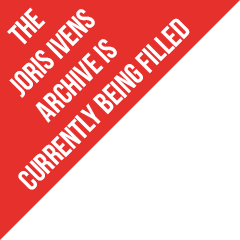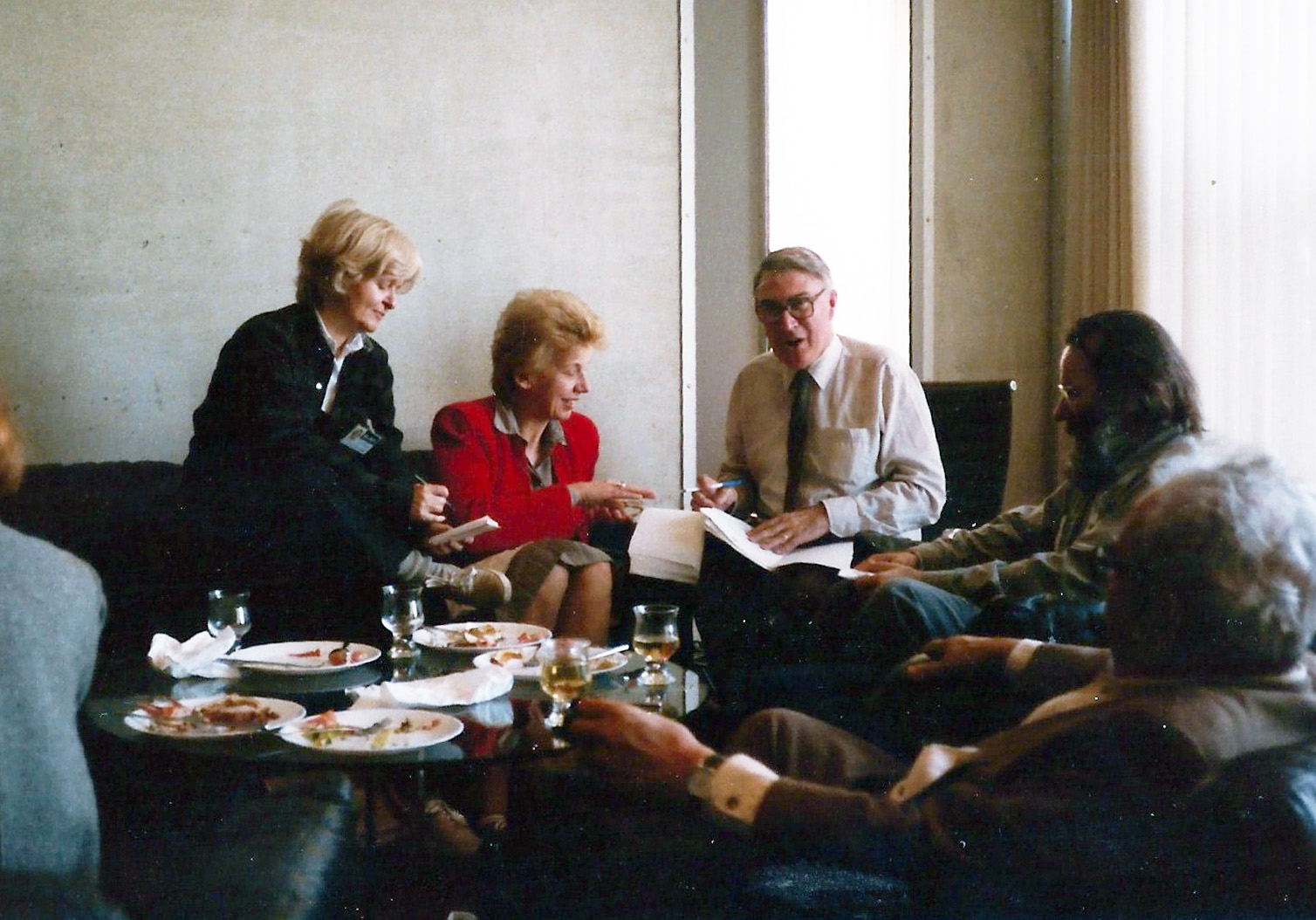

FIAF, in partnership with the Jan de Vaal Fund, invites film historians to submit proposals for thematic chapters as part of a forthcoming book on the 82-year history of the International Federation of Film Archives (FIAF), both as an institution and as a coherent global community with its shared values, cultural missions, professional practices, scientific methods, and collaborative projects. The European Foundation Joris Ivens is an associate of FIAF since 2002 and André Stufkens is participating as co-editor of the book, together with Christophe Dupin.

Project Background
Over the last few years, the FIAF Historical Archive (consisting mainly of a wealth of written documents, photographs, and audio recordings) preserved at the FIAF Secretariat in Brussels has been painstakingly sorted, boxed, catalogued, partly digitized, and made accessible on the FIAF website, while more archival papers are still being acquired. This development has already encouraged or made possible the study of various aspects of the history of the film heritage field and of the film archive movement, of which FIAF has been at the centre since the 1930s.At the same time, the history of the Federation so far has not yet been the subject of a single comprehensively study (especially in English). Existing texts only cover specific aspects of that history, or present an out-of-date perspective, or are only available in other languages. The time therefore seems ripe to envisage such a project.
In 2017, Tineke de Vaal agreed to donate the FIAF-related archival papers of her late husband Jan de Vaal, founder and first director of the Nederlands Filmmuseum (today Eye Filmmuseum) and one of the great FIAF figures for nearly half a century, to the FIAF Historical Archive. Shortly afterwards, having been impressed by the work done by the FIAF Secretariat to preserve its archival documents and document FIAF's history, she announced her intention to donate a significant amount of money to the Federation for the specific purpose of researching and publishing a history of the Federation: a project which she thought should be managed by FIAF, under the leadership of FIAF's Senior Administrator, himself a historian of the film archive movement. The Jan de Vaal Fund was founded on 12 November 2018, to help fulfil the aim of facilitating the exchange and production of knowledge about the history of FIAF, thus honouring her late husband's memory.The FIAF History Project was established in 2019 as a result of this generous donation. A scientific committee, consisting of several FIAF Honorary Members, friends of Jan de Vaal, and historians of the film archive movement, was constituted, and held its first meeting in Lisbon in September 2019 to further define the project and its possible outcomes. It soon became clear to all that a comprehensive book on the history of the Federation should be the Project's number-one priority. Christophe Dupin (representing FIAF) and André Stufkens (representing the Jan de Vaal Fund) were nominated as co-editors of the proposed book.
Proposed scope and structure of the book
The proposed book, to be published by FIAF, will be an edited collection of texts by serious (but not necessarily 'established' historians on all aspects of the history of FIAF and of its role in the development of the global film heritage field. It should be the result of scholarly research using all possible archival evidence in the FIAF Historical Archive in Brussels and elsewhere.What the book is not intended to be is a collection of interviews with, or personal recollections by, people who have played an active part in that history (for those, we have our separate FIAF Oral History Project). Nor should it be a book of anecdotes. However, if we are keen to publish a book of academic stature, with a core readership of film historians and archivists, we think it should also be of interest to the non-academic reader with an interest in the topics it contains. We sincerely hope that it can therefore be scholarly but at the same time accessible, richly illustrated, and well produced.It is proposed that the book will be divided into two parts:
1- An extensive introductory text, by FIAF historian Christophe Dupin, will provide a general narrative of the history of the Federation, highlight key debates, events, projects, and institutional developments, and describe the broad evolution of its global network.
2- A collection of shorter thematic contributions by individual experts on specific aspects of FIAF's history. Possible areas of study include (but are not absolutely limited to):
- The history of FIAF as an organization (for instance, the evolution of its statutory and regulatory texts; histories of the specialized Commissions, etc.).
- Quantitative and qualitative study of the FIAF network and its evolution; typology of FIAF-affiliated institutions over time (cinematheques; national, regional, or university film archives; film museums; etc).
- The history of collective FIAF-led projects (for instance, FIAF's unified silent film catalogues; the Periodicals Indexing Project; the Film Pool; the FIAF Summer Schools; etc.), or important FIAF publications.
- The study of key events or periods (for instance, FIAF in World War II; the 1960 'schism' with Henri Langlois; the significance of the 1978 Brighton Congress; etc.).
- The relationship between FIAF and other organizations and associations (for instance, UNESCO; regional groups; other audiovisual archiving associations; etc.).
- The impact of the wider context (political, cultural, technological, etc) on FIAF as an institution and a community (for instance, FIAF and the Cold War; FIAF's political neutrality; the digital revolution; etc).
- The human side of FIAF's history (for instance, the respective roles of key personalities or of different generations of FIAF leaders; women in FIAF's history; etc).
How to submit a proposal
To be considered for inclusion in the book, please fill in the form below, which includes a professional biography and an abstract (both of not more than 300 words), by Wednesday 31 March 2021. We will let you know whether your proposal has been accepted or not by 30 June 2021. If so, your contribution will consist of a chapter of no more than 6,000 words, including references and figures.Note that proposals may be submitted in English, French, or Spanish. However, the book will be published solely in English. As our budget for translations will be limited, we will only be able to accept a limited number of chapters submitted in another language. Please indicate in the form below whether or not you will be able to submit your text in English.Should you have any questions or comments about this project, do not hesitate to write to us at This email address is being protected from spambots. You need JavaScript enabled to view it..Christophe Dupin (FIAF) & André Stufkens (European Foundation Joris Ivens / Jan de Vaal Fund)See for submission form: https://www.fiafnet.org/pages/Formulaires/FIAF-History-Call-en.html
